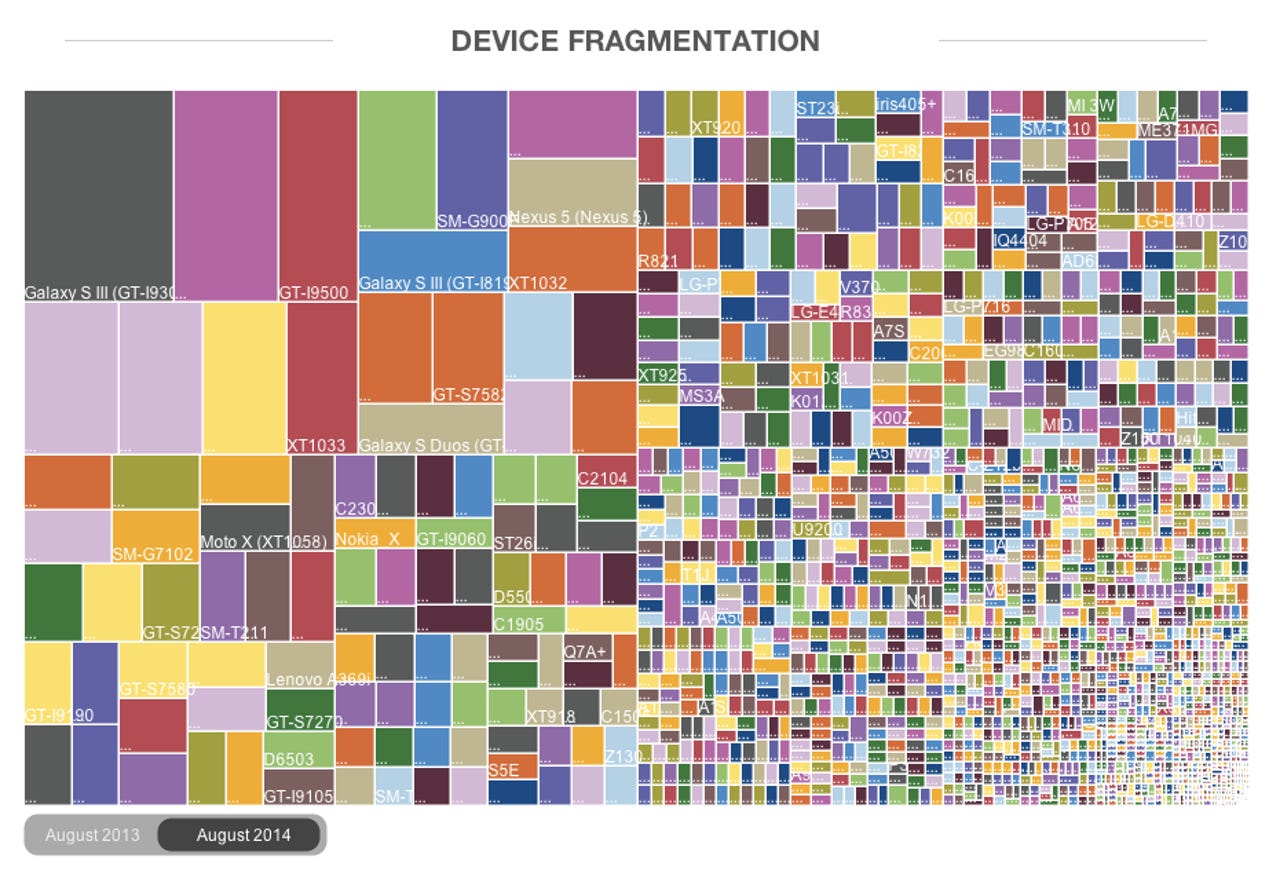Devs now have over 18,000 different Android devices to tweak apps for


App developers now have 18,796 different Android devices to consider if they want to optimise their apps for each possible configuration, according to a new survey from OpenSignal.
Google might be making headway on reducing the challenges of operating system fragmentation, but one thing it has little control over is device fragmentation — which includes handsets' various screen sizes, which sensors a device has onboard, and different performance levels.
This type of fragmentation, in addition to the different versions Android that power handsets, has been one of the reasons why developers have built for iOS first, where they need to cater to just four different screen sizes and generally can rely on the bulk of users being on the most recent OS. Still, with Android being the dominant OS when it comes to market share, developers can't ignore it.
Android insecurity
OpenSignal, which produces reports on the quality of mobile data networks around the world, has also been keeping a tab on Android device fragmentation, surveying hundreds of thousands of devices that have its app installed to track each model and their different screen sizes.
In last year's survey of 682,000 handsets, it found 11,868 separate device configurations, up on its 2012 count of just 3,997. This year, surveying the same number of devices, it found nearly 7,000 more devices, meaning that in theory developers need to consider 18,769 devices if they want to ensure their product is optimised for each of them.
While developers are unlikely to check every device, they can, say, pick the 10 most popular devices to test their apps against. But the rise in Android device types means that testing those top devices will only represent about 15 percent of the market, compared to last year when the top 10 represented 21 percent.
Samsung of course continues to dominate Android sales and, according to OpenSignal, is behind 12 of the 13 most popular devices. However, its 43 percent share of the market has declined from 47.5 percent last year, and Sony is now ranking second with a 4.8 percent share.
While Google is addressing Android fragmentation through Google Play Services and moving key Google apps to being handled through its Play app store, according to OpenSignal, the Android operating system is "the most fragmented it has ever been".
Google publishes its own Android version distribution numbers each month, highlighting the popularity of each OS. In August, KitKat Android 4.4 was running 21 percent of devices with Google Play installed, with just over half of all Android devices remaining on Jelly Bean. It also highlighted seven versions of the OS with more than 0.1 percent distribution.
One figure Google hasn’t yet published though is the breakdown between different versions of KitKat, from 4.4.1 to the latest update 4.4.4. OpenSignal factors in all three versions, showing that there are in fact 19 individual versions of Android currently running on devices.